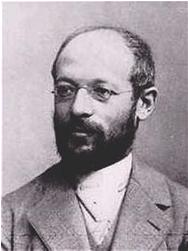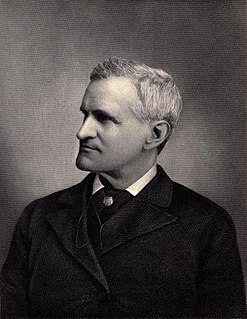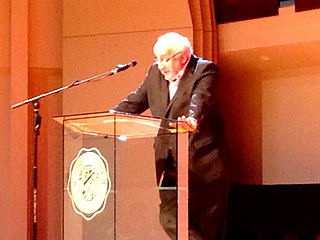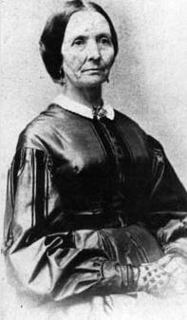Top 206 Faithfulness Quotes & Sayings - Page 4
Explore popular Faithfulness quotes.
Last updated on December 18, 2024.
Fasting with a pure heart and motives, I have discovered, brings personal revival and adds power to our prayers. Personal revival occurs because fasting is an act of humility. Fasting gives opportunity for deeper humility as we recognize our sins, repent, receive God's forgiveness, and experience His cleansing of our soul and spirit. Fasting also demonstrates our love for God and our full confidence in His faithfulness.
Out of the darkness of my life, so much frustrated, I put before you the one great thing to love on earth: the Blessed Sacrament....There you will find romance, glory, honor, fidelity, and the true way of all your loves upon earth, and more than that: death: by the divine paradox, that which ends life, and demands the surrender of all, and yet by the taste (or foretaste) of which alone can what you seek in your earthly relationships (love, faithfulness, joy) be maintained, or take on that complexion of reality, of eternal endurance, that every man's heart desires
Give us, O Lord, a steadfast heart, which no unworthy affection may drag downwards; give us an unconquered heart, which no tribulation can wear out; give us an upright heart, which no unworthy purpose may tempt aside. Bestow upon us also, O Lord our God, understanding to know you, diligence to seek you, wisdom to find you, and a faithfulness that may finally embrace you; through Jesus Christ our Lord.
Gratitude, as it were, is the moral memory of mankind. In this respect, it differs from faithfulness by being more practical and impulsive: although it may remain, of course, something purely internal, it may yet engender new actions. It is an ideal bridge which the soul comes across again and again, so to speak, and which, upon provocations too slight to throw a new bridge to the other person, it uses to come closer to him.
Faithfulness to the truth of history involves far more than a research, however patient and scrupulous, into special facts. Such facts may be detailed with the most minute exactness, and yet the narrative, taken as a whole, may be unmeaning or untrue. The narrator must seek to imbue himself with the life and spirit of the time. He must study events in their bearings near and remote; in the character, habits, and manners of those who took part in them. He must himself be, as it were, a sharer or a spectator of the action he describes.
The test of the life of a saint is not success, but faithfulness in human life as it actually is. We will set up success in Christian work as the aim; the aim is to manifest the glory of God in human life, to live the life hid with Christ in God in human conditions. Our human relationships are the actual conditions in which the ideal life of God is to be exhibited.
We believe we are entitled to the gift of the Holy Ghost in extent according to the discretion and wisdom of God and our faithfulness; which gift brings all things to our remembrance, past, present, and to come, that are necessary for us to know, and as far as our minds are prepared to receive the knowledge of God revealed by that all-wise Agent. The Holy Ghost is God's minister, and is delegated to visit the sons and daughters of men. All intelligent beings pertaining to this earth are instructed from the same source.
Sometimes when we read the words of those who have been more than conquerors, we feel almost despondent. I feel that I shall never be like that. But they won through step by step, by little bits of wills, little denials of self, little inward victories, by faithfulness in very little things. They became what they are. No one sees these little hidden steps. They only see the accomplishment, but even so, those small steps were taken. There is no sudden triumph, no spiritual maturity. That is the work of the moment.
God's Word will never pass away, but looking back to the Old Testament and since the time of Christ, with tears we must say that because of lack of fortitude and faithfulness on the part of God's people, God's Word has many times been allowed to be bent, to conform to the surrounding, passing, changing culture of that moment rather than to stand as the inerrant Word of God judging the form of the world spirit and the surrounding culture of that moment. In the name of the Lord Jesus Christ, may our children and grandchildren not say that such can be said about us.
I have learned to accept it, even ask for it, this 'more than I can handle.' Because in these times, God shows Himself victorious. He reminds me that all of this life requires more of Him and less of me. God does give us more than we can handle. Not maliciously, but intentionally, in love, that His glory may be displayed, that we may have no doubt of who is in control, that people may see His grace and faithfulness shining through our lives.
The goal of faithfulness is not that we will do work for God, but that He will be free to do His work through us. God calls us to His service and places tremendous responsibilitie s on us. He expects no complaining on our part and offers no explanation on His part. God wants to use us as He used His own Son.
Here is Max De Pree at his best, and that is very good indeed. In Leading Without Power, De Pree shows us why we cannot master the how-to-dos of effective leadership without also being clear about what leaders?and followers?must be. In doing so, he not only provides us with much practical wisdom about creative leading and organizational health, he also nurtures our souls. This is a book to be savored by all who care about such things as vision, faithfulness, trust, and hope.
If same-sex relationships are really sinful, then why do they so often produce good fruit-loving families, open homes, self-sacrifice, commitment, faithfulness, joy? And if conservative Christians are really right in their response to same-sex relationships, then why does that response often produce bad fruit-secrets, shame, depression, loneliness, broken families, and fear?
Love of goodness without love of learning degenerates into simple-mindedness. Love of knowledge without love of learning degenerates into utter lack of principle. Love of faithfulness without love of learning degenerates into injurious disregard of consequences. Love of uprightness without love of learning degenerates into harshness. Love of courage without love of learning degenerates into insubordination. Love of strong character without love of learning degenerates into mere recklessness.
How was it that, even in the common tasks of an ordinary life, Jesus drew the praise of heaven? At the core of His being, He only did those things which pleased the Father. In everything, He stayed true, heartbeat to heartbeat, with the Father's desires. Jesus lived for God alone; God was enough for Him. Thus, even in its simplicity and moment-to-moment faithfulness, Christ's life was an unending fragrance, a perfect offering of incomparable love to God.
You and I were among those who used their agency to accept Heavenly Father's plan to come to earth, to have a mortal life, to progress. "We shouted for joy ... to have the opportunity of coming to the earth to receive bodies [for we knew] that we might become, through faithfulness, like unto our Father, God." Now we are here on earth, where opportunities to use our agency abound; for here "there is an opposition in all things." This opposition is essential to the purpose of our lives.
It constantly remains a source of disappointment to me that my drawings are not yet what I want them to be. The difficulties are indeed numerous and great, and cannot be overcome at once. To make progress is a kind of miner’s work; it doesn’t advance as quickly as one would like, and as others also expect, but as one stands before such a task, the basic necessities are patience and faithfulness. In fact, I do not think much about the difficulties, because if one thought of them too much one would get stunned or disturbed.
Let us not live a life … that would bring regret. … It is not going to matter very much how much money you made, what kind of a house you lived in, what kind of a car you drove, the size of your bank account—any of those things. What is going to matter is that dear woman who has walked with you side by side as your companion through all of the years of life and those children and grandchildren and great-grandchildren and their faithfulness and their looking to you … with respect and love and deference and kindness.
By our uncritical pursuit of relevance we have actually courted irrelevance; by our breathless chase after relevance without a matching committment to faithfulness, we have become not only unfaithful, but irrelevant; by our determined efforts to redefine outselves in ways that are more compelling to the modern world than are faithful to Christ, we have lost not only our identity but our authority and our relevance. Our crying need is to be faithful as well as relevant
What is a great love of books? It is something like a personal introduction to the great and good men of all past times. Books, it is true, are silent as you see them on their shelves; but, silent as they are, when I enter a library I feel as if almost the dead were present, and I know if I put questions to these books they will answer me with all the faithfulness and fulness which has been left in them by the great men who have left the books with us.
From my student days I found him a compelling and fascinating, though often puzzling, figure. It's a lifelong fascination now and I don't expect that to stop! His vision of God, God's faithfulness, God's purposes and so on is so much bigger and richer than almost any subsequent Christian thinker has ever managed. In addition, I have always loved ancient history, especially the history of the early Roman empire, and of course Paul fits right into that.
Sister Eliza R. Snow was given a charge from the prophet Brigham Young to help lift and teach the sisters of the Church. She “taught that individual women could receive inspiration to guide them in their personal lives, their families, and their Church responsibilities. She said: ‘Tell the sisters to go forth and discharge their duties, in humility and faithfulness and the Spirit of God will rest upon them and they will be blest in their labors. Let them seek for wisdom instead of power and they will have all the power they have wisdom to exercise.’
Jesus didn’t die to keep us safe. He died to make us dangerous. Faithfulness is not holding the fort. It’s storming the gates of hell. The will of God is not an insurance plan. It’s a daring plan. The complete surrender of your life to the cause of Christ isn’t radical. It’s normal. It’s time to quit living as if the purpose of life is to arrive safely at death. It’s time to go all in and all out for the All in All. Pack your coffin!























